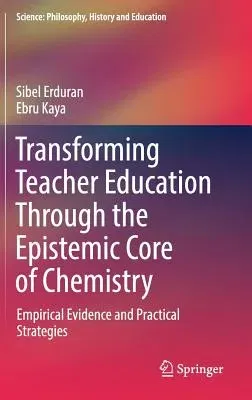Sibel Erduran
(Author)Transforming Teacher Education Through the Epistemic Core of Chemistry: Empirical Evidence and Practical Strategies (2019)Hardcover - 2019, 18 June 2019

Qty
1
Turbo
Ships in 2 - 3 days
In Stock
Free Delivery
Cash on Delivery
15 Days
Free Returns
Secure Checkout

Part of Series
Science: Philosophy, History and Education
Print Length
189 pages
Language
English
Publisher
Springer
Date Published
18 Jun 2019
ISBN-10
3030153258
ISBN-13
9783030153250
Description
Product Details
Authors:
Book Edition:
2019
Book Format:
Hardcover
Country of Origin:
NL
Date Published:
18 June 2019
Dimensions:
23.39 x
15.6 x
1.42 cm
ISBN-10:
3030153258
ISBN-13:
9783030153250
Language:
English
Location:
Cham
Pages:
189
Publisher:
Weight:
480.81 gm